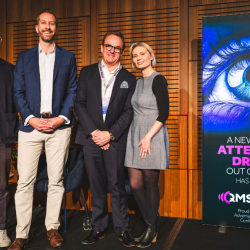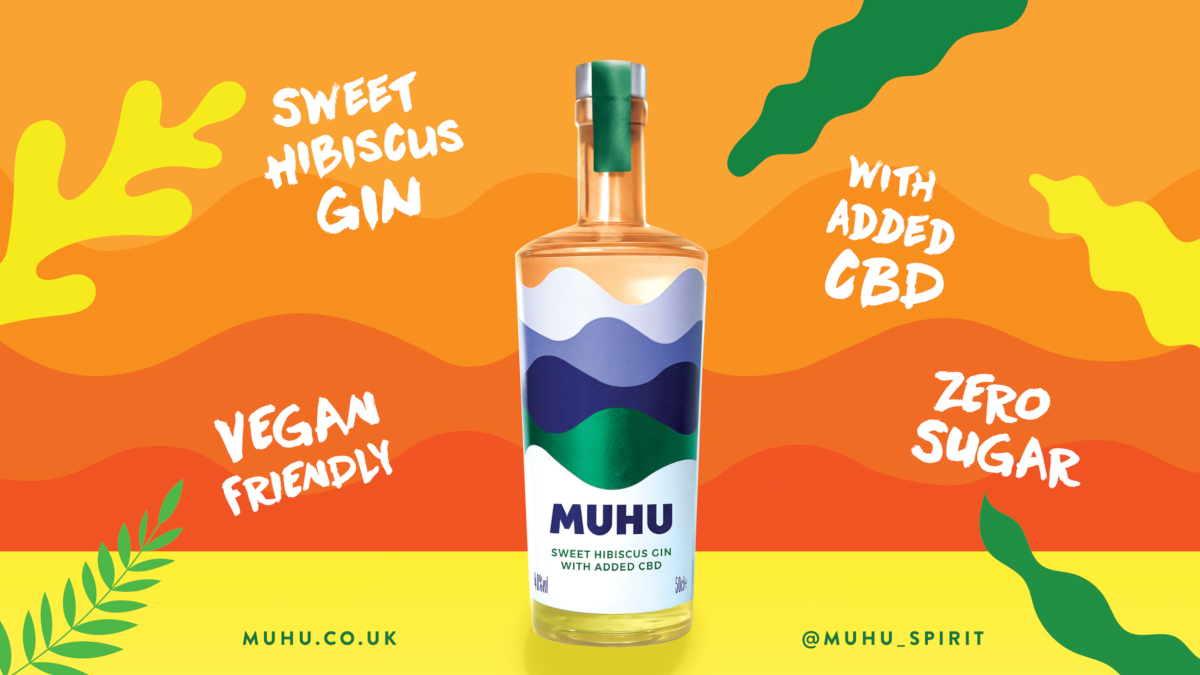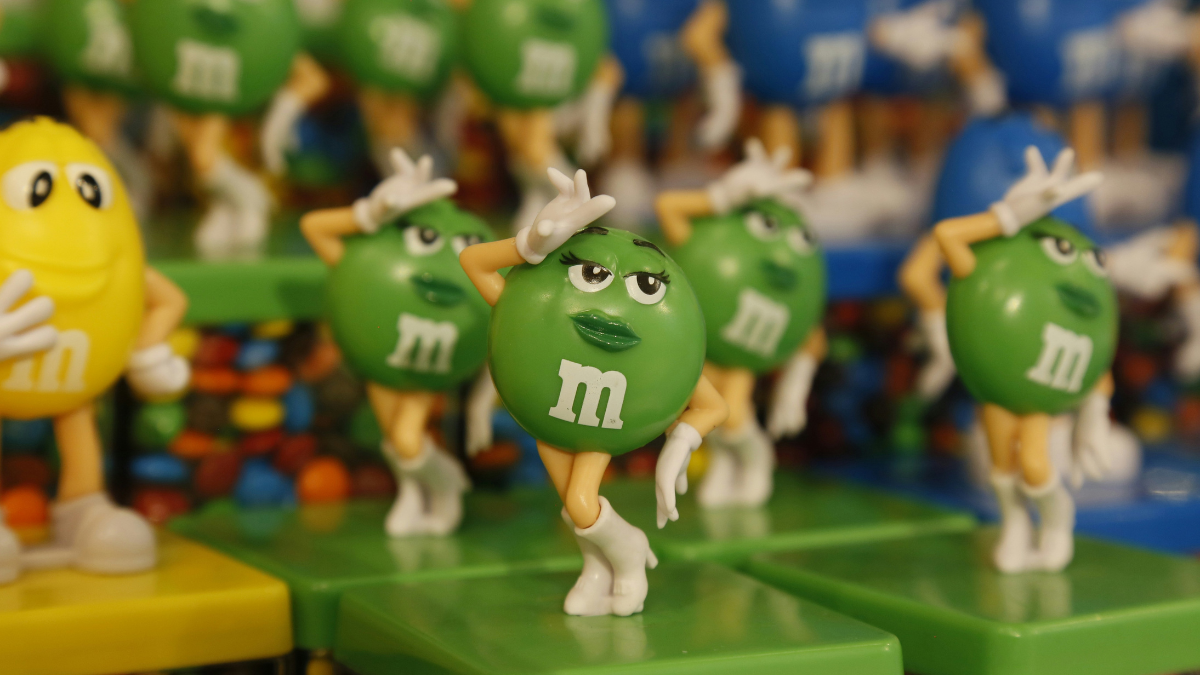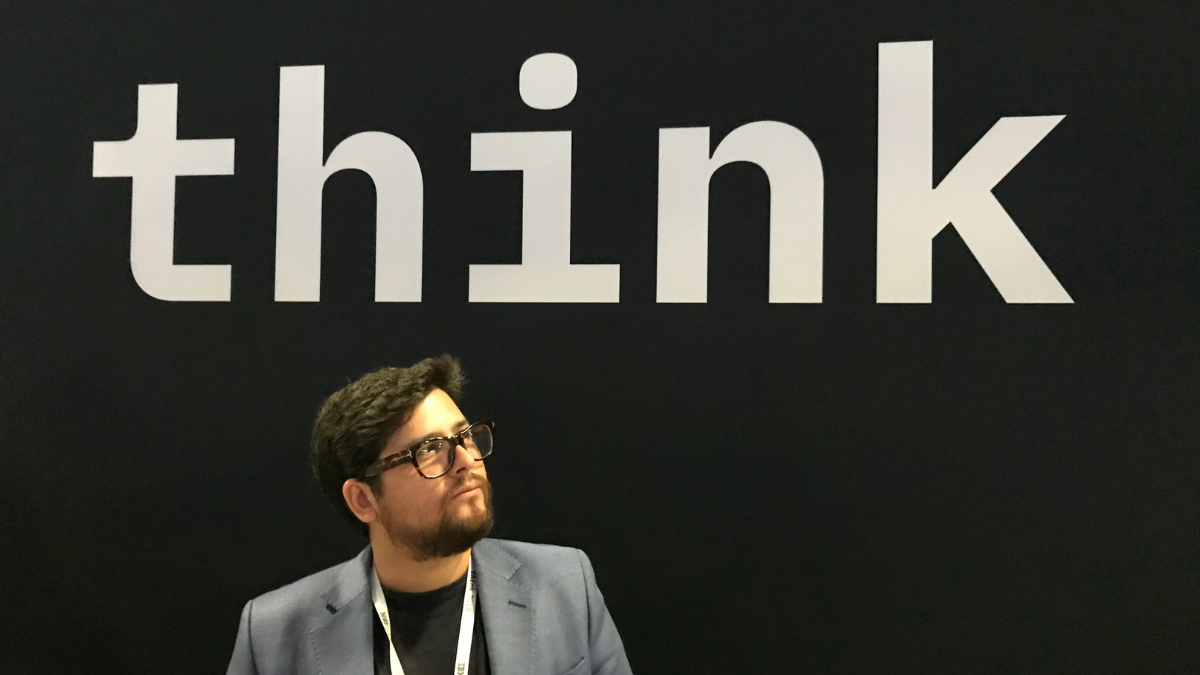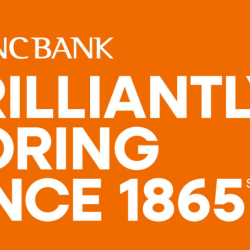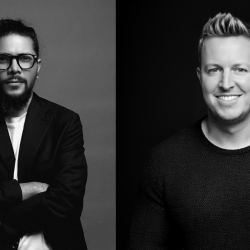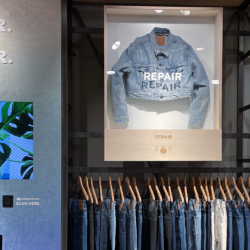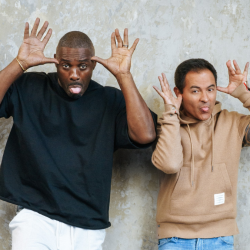Sally founded MUHU Spirits in 2019, on a budget of around £1000. A short time later she sold it (for an undisclosed seven-figure sum) to Next Frontier Brands, a company that owns, amongst others, brands like Snow Leopard Vodka. In Sally’s words, the last few years have been ‘a wild ride’. We spoke to her about how it all began and what’s next.
Hi Sally. Good to meet you. We initially connected on LinkedIn when you did a post about cycling and I replied talking about how I got electrocuted during Tough Mudder. As a way to start communicating, I think it’s a good one. In the last couple of years, since you founded MUHU, who are the weirdest and most wonderful people that you’ve met on your journey?
Sally Wynter: I agree! I must have met hundreds of people over the past two years. When I started out I was totally new to ‘this’ world. I didn’t even know anyone that had their own business so building a network in the start-up space was top of my agenda.
I’ve always found it amazing how total strangers are happy to give up a bit of their time for someone earlier in the journey. In a world that harbours much evil, my experience of starting up a business as a newbie really convinced me that people are (largely) inherently good.

Let’s go back to how it began. What made you choose gin as a first product to create, and why CBD as part of that?
SW: I went through dozens of ideas when I got the bug. My first ever idea was, much like everyone else, an app. I thought it was a ‘million pound idea’ back before I knew that there is only such a thing as ‘million pound execution’. With no credentials, I quickly realised a tech start-up was too daunting for a newbie — especially knowing I’d have to raise a bunch of money and find a technical co-founder. I decided I was much more comfortable with something less risky… something tangible, where I could start with just a few hundred pounds saved up from freelancing jobs.
I’d been making my own drink mixes at home since my second year of uni, so when I started getting into CBD and seeing all the issues with the bitter tasting oils, I knew gin would be the perfect spirit of choice from which Brits could have their first CBD experience. The way I saw it, if ‘worst comes to worst’ then everybody loves gin. I’d be able to sell the bottles at cost to family and friends.
Back in 2019, and I imagine leading up to launch when you were creating the product, CBD wasn’t big in the UK. The market has grown in the last few years but did it feel like a big risk — to go that route at the time? What made you confident the market was going to grow?
SW: The reverse. I was convinced that CBD was the USP I needed, if I was going to release ‘yet another gin’ into the saturated UK market with absolutely no budget to market it. CBD was new, but already exploding in blogs and chat rooms online. There was an appetite to try CBD in the UK, but many were put off by both the taste of the bitter oils and the stigma around cannabis.
So I combined something people loved and felt was safe (gin), with something trending but viewed with caution (CBD), into a single approachable product. The idea was that it would enable people to have a first time experience with CBD, in a fun setting.

With your career prior to founding Muhu you freelanced for ITN and worked as a film producer for a media production company. Did friends and family think you were crazy, deciding to end that path and launch your own business? What was your biggest hurdle at the time?
SW: Absolutely! Getting into journalism, especially, is a highly sought-after career path in the UK. People asking me whether I really wanted to give up something so coveted. But early on I knew I didn’t want to spend my life under the command of a big organisation, putting up with petty office politics and asking for permission to take a holiday. Like many people my age, I wanted to hustle, with a view of someday reaching financial freedom.
I continued to freelance in media production until I launched MUHU in September 2019. It was then I went full time with the business. The daunting but necessary step that every business owner has to take at some point.
What did you learn from the process of creating a CBD-based alcoholic drink? James Dyson had 5,126 versions of a vacuum that didn’t work before he got it right. How many versions of gin did you create before landing on ‘the one’?
SW: SO many. MUHU almost never made it to market because, on the first distillation trials, the liquid came out looking like dirty dish water! It was one of the most stressful parts of the development process — not knowing whether the colour was something that could be rectified. I started to question whether MUHU could be a viable product in its non-clear state.
Instinctively, I knew that I wouldn’t buy a cloudy gin, especially if I was already cautious with the CBD part of the product, so I pressed on, experimenting with various forms of CBD extract until, together with the distillery, we found a method that produced a clear spirit.

What did launching a business teach you about yourself as a person, and as a business leader?
SW: That I’m capable of more than I know. We all are. Every single step, from first talking about my brand on LinkedIn to having my first media interview was something I was terrified of. There were so many unknowns at every corner. I’d never even worked behind a bar, so had absolutely no credibility in the drinks industry! In the end, my journey was just as much about starting a business as it was a personal challenge. I wanted to see how far I could push myself.
Even though CBD is becoming more popular, products are still not the easiest to find. I’m not sure if it’s a supply issue or consumers being slow to try new things. It feels like the UK is only finally coming around to kombucha. What’s your impression of the wellness drinks market? Is it to do with people not wanting to try new things or suppliers avoiding risk, or both?
SW: CBD is a special case because the EU stepped in with the Novel Foods regulation a few years back, which massively stunted growth in this space. I’ve not kept up with where it’s at today, but from my understanding, brands have to spend hundreds of thousands of pounds on mandatory testing to be allowed to continue to sell products.
It’s a fast route to minimising smaller start-ups in the space and that, combined with COVID, appears to have reduced the appetite for new CBD-infused food and beverage brands a little, for the time being.
Do you find there’s still a stigma around CBD? A mainstream paper had a headline about you which read ‘Cannabis gin founder on a high’, which annoyed me. For a start, I consider CBD and cannabis to be two different things, to a degree. Second, you can’t get high from it, so they were being sensationalist, unsurprisingly for a paper. Where do you stand? Have the media helped or hindered your journey?
SW: The stigma seems to have massively reduced and I think that’s to do with widespread adoption over different age groups, ranging from teenagers all the way to older people in their 80s and 90s. When I designed MUHU I made a conscious decision to avoid any branding elements which added to the stigma around cannabis and getting ‘high’, because it simply isn’t helpful when thinking about CBD.
Getting featured in the media was crucial for every step of my journey. Through the whole process I didn’t spend a penny on advertising — instead I sought out press release templates online and reached out to journalists that covered stories in a similar space. It enabled me to grow my sales and awareness of CBD, and even attracted the company I ended up being acquired by!

On that note, after selling MUHU to Next Frontier, what have you been up to? Should we expect another CBD product in the near future? I feel like the market is still in its infancy.
SW: Until a few months ago I’d been spending time working with the company that acquired me. I’m now advising a few different brands and figuring out what I’d like to do next. Watch this space for a potential podcast.
Start-up wise, I’ll finally be pursuing something in tech, once I decide which of my ideas to take forward. I’m not in a huge rush, since I know this next one will probably be a 3-5 year commitment, so will likely start towards the end of 2022.
Any final thoughts or advice to share with our readers — for those thinking about launching their own businesses and brands?
SW: I started off with no money and no experience of the industry. If you want to start a business, there is no better time than now. With enough dedication, you can learn everything from online blogs, videos and social communities. Make sure to surround yourself early with other founders or wannabe entrepreneurs — it’s hugely important for motivation and to sound board ideas.






